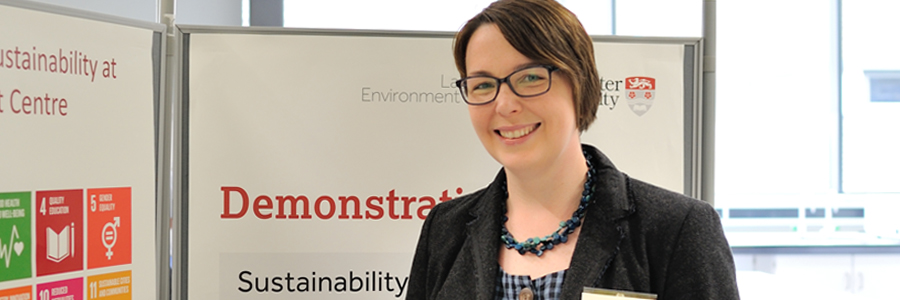Report calls for business action on soil health

Companies are beginning to understand that investing in soil health is critical for the future of their business, but the time for action is now, according to a new report launched today at the United Nations-sponsored climate talks in Katowice, Poland.
Lancaster University’s Dr Jess Davies was lead editor behind this World Business Council for Sustainable Development report launched today, World Soil Day at the UNFCCC COP24.
The report shows how companies around the world are beginning to address the issue and identifies the next steps for scaling-up action and investment in soil health.
Dr Davies said: “This is an important time to be talking about soils. Soils play an important part in climate change as they contain two to three times more carbon than the atmosphere.
“By working with nature and improving soil health, we can enable more carbon to remain in the soil, helping to reduce emissions and withstand some of the unavoidable effects of climate change.
“The message that climate change poses huge business risks has been established for some time. However, this report is a landmark in signalling that the global business community also identifies soil and land degradation as a substantial risk and an opportunity for tackling multiple sustainability challenges – including climate change.”

Dr Jess Davies
Whilst businesses may be attracted to invest for one primary outcome – such as enhancing crop productivity or livelihoods, climate mitigation, improving water resources, or protecting biodiversity - the report demonstrates that an investment in soils for any one of these outcomes will deliver multiple benefits.
The publication identifies three key next steps to accelerate action in this area:
1. Lower the hurdles to practices that promote soil health: for example, by growers in offsetting the initial cost of implementing sustainable agricultural practices that promote soil health.
2. Take advantage of the national context and act locally: alignment with national soil health policies and the United Nations Convention to Combat Desertification (UNCCD) commitments such as the Land Degradation Neutrality baselines could open up financial options and technical support for in-country projects.
3. Build partnerships for soil health: an investment in soil health delivers both public and private benefits, but adapting action to local context is key. Business can explore supply chain cooperation, public-private partnerships and landscape alliances that spread costs and risks, promote innovation and knowledge exchange and ensure locally-appropriate solutions.
Most importantly, companies are encouraged to take action immediately. Science-based solutions that integrate the issue of soils into reporting, accounting and supply chain assurance can already be piloted and implemented.
Sunny Verghese, Co-Founder and Group CEO of Olam International and WBCSD Chair said: “As part of our commitment to re-imagine global agriculture, I envisage this defining work becoming the basis for companies to make large-scale investments in soil health preservation and regeneration practices. By understanding the environmental, social and business benefits, businesses can now see the full picture, and I expect this will spur more and more investments in the area.”
‘The Business Case for Investing in Soil Health’ was collaboratively produced by business practitioners, researchers and experts, supported and facilitated by the WBCSD Climate Smart Agriculture project. It was coordinated by an editorial committee of representatives from IUCN, WWF, The Nature Conservancy and Lancaster University. More than 30 authors have contributed their views to the report.
Back to News
